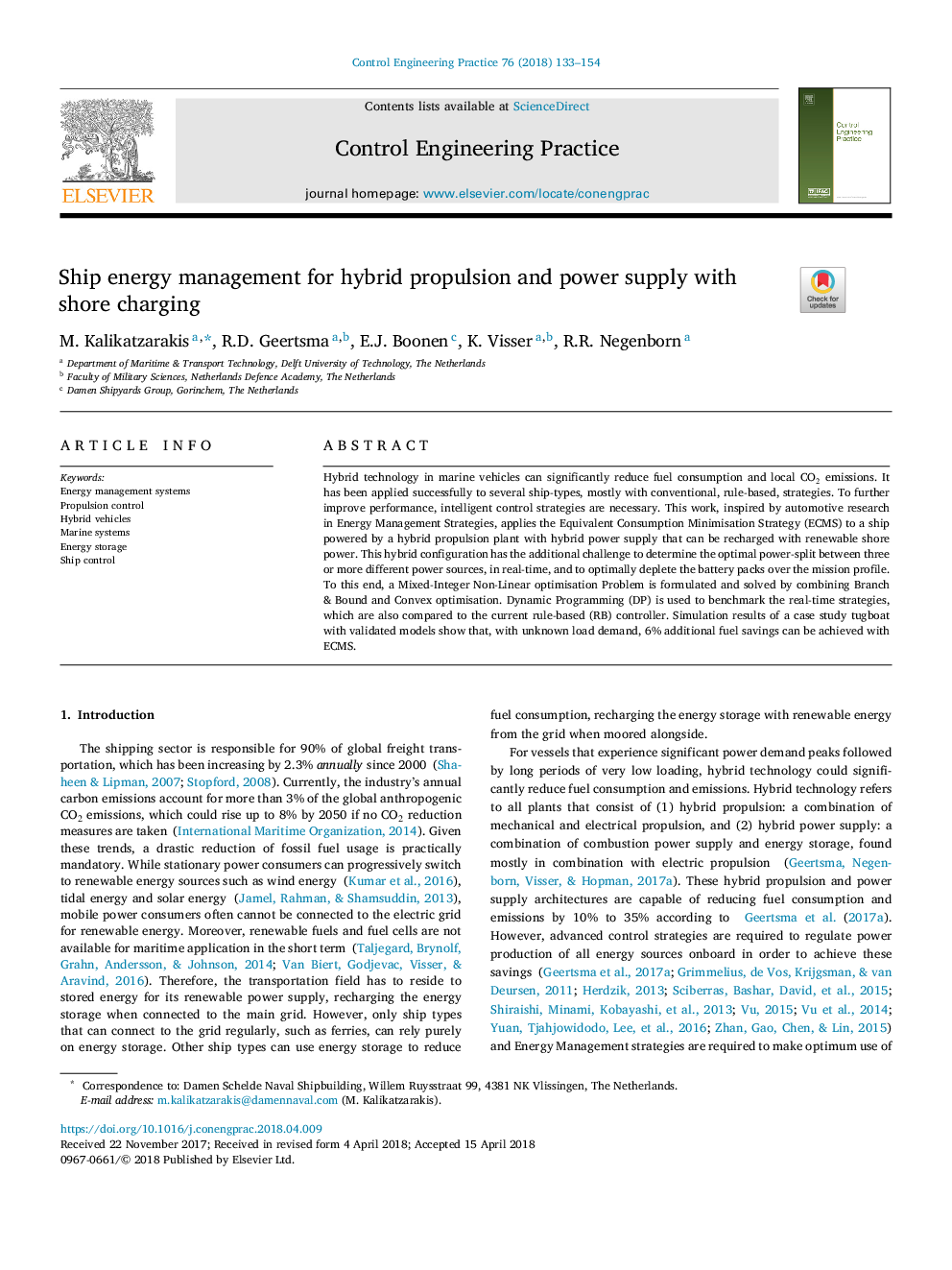| Article ID | Journal | Published Year | Pages | File Type |
|---|---|---|---|---|
| 7110292 | Control Engineering Practice | 2018 | 22 Pages |
Abstract
Hybrid technology in marine vehicles can significantly reduce fuel consumption and local CO2 emissions. It has been applied successfully to several ship-types, mostly with conventional, rule-based, strategies. To further improve performance, intelligent control strategies are necessary. This work, inspired by automotive research in Energy Management Strategies, applies the Equivalent Consumption Minimisation Strategy (ECMS) to a ship powered by a hybrid propulsion plant with hybrid power supply that can be recharged with renewable shore power. This hybrid configuration has the additional challenge to determine the optimal power-split between three or more different power sources, in real-time, and to optimally deplete the battery packs over the mission profile. To this end, a Mixed-Integer Non-Linear optimisation Problem is formulated and solved by combining Branch & Bound and Convex optimisation. Dynamic Programming (DP) is used to benchmark the real-time strategies, which are also compared to the current rule-based (RB) controller. Simulation results of a case study tugboat with validated models show that, with unknown load demand, 6% additional fuel savings can be achieved with ECMS.
Keywords
Related Topics
Physical Sciences and Engineering
Engineering
Aerospace Engineering
Authors
M. Kalikatzarakis, R.D. Geertsma, E.J. Boonen, K. Visser, R.R. Negenborn,
